
As the basic unit of a society or community, family plays a significant role in the lives of all people in the world. The bond that your family members build from birth mold you into an individual that is unique from any other. If well built, this bondage becomes quite strong and handles various issues including pressures of life. However, if it is weak, the family members begin to face problems that are tricky to settle.
The recent times are nothing like the past. In the previous centuries, most families were complete starting with the nuclear part and extending to the extended structure that comprises of the in-laws, grandparents, cousins, aunts and uncles.
Currently, the family structure seems to have taken a whole other different meaning due to disruption from abandonment, incarceration, and death and drug addiction. It has ended up in types such as single parent, nuclear, step, foster and multigenerational families.
Drug Addiction
The dependency on any psychoactive drugs takes place almost every day in multiple parts of the world. It is impossible to realize this fact if you hardly abuse drugs and are busy with work and other responsibilities. However, it is a sad truth that you can witness, if you look closer at your streets and hospitals.
If not a reported death due to an overdose, then it is some dirty, paranoid and confused persons hovering around a corner waiting to buy drugs from their dealer or even begging passersby for money. Note that not all people looking like this are into drug addiction; some are just homeless, hungry and in need of a home.
Unfortunately, some of these drug addicts are family members to people that care about them but hardly know how to help them. They are so dependent on drugs that functioning without them is impossible and causes serious and unbearable withdrawal symptoms. If you are a drug addict it is time you realize the sort of damage that you are doing upon your family.
 It is likely that you continuously do harmful things to your family members, all in the effort of acquiring drugs. These may involve stealing their valuables and money, and also getting violent whenever they are not able to provide for you.
It is likely that you continuously do harmful things to your family members, all in the effort of acquiring drugs. These may involve stealing their valuables and money, and also getting violent whenever they are not able to provide for you.
If you are an important family pillar such as a bread winner, neglecting your duties is common, which hurts your loved ones since they are completely dependent on you. These issues cause the breakdown of the family bond due to the frustrations and psychological damage upon family members.
Family Member’s Addiction
Since addiction is as a result of multiple uncontrollable ad controllable factors, it is quite unfair to blame you entirely for landing in the menace. This conclusion means that anybody in the family structures mentioned earlier can as well fall victim.
Unfortunately, there are consequences due to this fall. For instance, if you are part of the nuclear family, the rest of the extended family may choose to stay away from all of you, simply because you seem like a rotten mango that will damage all the rest.
What’s worse is the effect that your addiction will have on your children. Due to the intergenerational issues that are likely to occur, your children will either follow your foot steps by indulging in drugs as well, especially to escape the pain you caused them , or they will hate anything to do with drugs with so much passion.
The negative side of these occurrences is that they could affect the growth of your grandchildren. With the former, your children will behave just like you and continue the cycle of hurting others, which in this case include your grandchildren. On the other hand, the latter will result to excessive strictness due to paranoia, thus cause psychological issues upon these kids.
Addict’s Family Characteristics
If your family is not the cause of your drug addiction, then it highly likely that you could cause one or more of your family members to fall in the same pit, just as explained above. The following are some of the factors that could cause this occurrence:
- Parental inconsistency
As a parent that is addicted to drugs, your decision and your spouse’s will result in some inconsistent behaviors that could confuse your children when differentiating between right and wrong. The family structure will seem inadequate due to erratic rule setting and inconsistent enforcement.
Since your kids do not know the limits they will do anything just to test your response and thus get your attention. Among the activities they may indulge is drug abuse, to see if it will hurt you like you hurt them.
- Negativism
Drug addiction always causes some type of negative energy in the family. So your family members could end up indulging more into the negatives than positives since they hardly know happiness. Complains, criticism and displeasure expressions increase while appreciations decrease.
- Self medication
Instead of being a good example to you family members, your behaviors especially under the influence of drugs will cause your home to become toxic. This will cause your loved ones to develop issues like anxiety, depression and intolerable thoughts and feelings.
When it gets too much to bear, they may opt to conduct self medication, which involves consuming psychoactive substances like drugs and alcohol. If change does not take place, addiction will kick in quite fast.
- Parental denial
A combination of negativism, parental inconsistency and self medication eventually leads to parental denial. This is the point whereby your children are so into drugs that they change their behaviors from good to bad to worse. They may start being rude, arriving late to school or even missing classes, and begin dropping in performance.
However, you will not notice since you are busy on the other side as a drug addict. So you will hardly believe your children’s’ teachers even when they bring reliable evidence. In fact, you are likely to pretend that you have the most perfect family.
- Unrealistic parental expectations
Despite being a drug addict, it is possible that you once had dreams that your children should prosper in life and acquire more success than you. That dream is still in your subconscious mind and will often pop up whenever you are under the influence of a drug.
Unfortunately, you will present this vision in a negative way and instead of inspiring your subjects, you will push them to limits that they cannot handle. This may include forcing them into careers that they do not want or giving them unrealistic targets. All these will lead them into drugs for comfort.
- Miscarried anger expression
Your children will always be angry with you for your actions while under the influence of drugs and actually for being an addict. If they are not able to express this anger in the proper way, they will end up expressing it in the wrong way, which is through indulging in drugs while searching for calmness.
All these factors could lead to a never ending spiral of drug addiction if you do not get rehabilitation and focus on being a better parent. Imagine being an addict and having children that are also falling into addiction? What becomes of such a family?
Family Trauma Due To Addiction
Trauma is something that takes control of a person’s mind to the point of having symptoms that seem to rewind the occurrence of the bad or traumatic experiences. As an addict, you are likely to cause trauma upon your family members since you have lesser control over your senses and cognition. This does not only apply to your children, but also to your significant other.
Trauma due to addiction comes from your behavior while under the influence of drugs. Are you rude? Do you use offensive words? Do you emotionally abuse your family even for the slightest mistakes? Are you violent? Do you threaten to harm or kill them?
If you repeatedly indulge in all or some of the above, then you are likely to cause psychological effects upon your family, which will lead to trauma. Due to these traumatic experiences, your family members are likely to develop certain characteristics that will indicate that there is a serious problem
The following are some of the characteristics of a traumatized family:
- Depression
As mentioned above, your family members may have anger, sadness or rage towards you for the way you treat them. If these emotions are blocked or unexpressed, they grow inward thus forming a flat internal world. This internal pain has no resolution, unless external help comes by such as therapy.
- Anxiety
With frequent traumatizing experiences, your family develops worries since they hardly know what you will do next, especially if a mistake occurs. These anxieties may project in the form of sleep disturbances and phobias.
- Loss of faith and trust
As you continually abuse your family, physically or emotionally, you turn their orderly world into tiny pieces consisting of ruptured dependency relationships. Therefore, they hardly have faith in anything and also distrust everyone around them.
- Traumatic bonding
Despite that your family will lose trust, they will tend to be more comfortable in relationships that have power imbalance since their mindset has already tuned in to such a lifestyle. Therefore, they are likely to enter into unhealthy bonding styles with other people in their lives.
- Relationship issues
Not all people in your family’s lives will bring about traumatic bonding. Some will come with good intentions like making their lives better by helping them realize their potential in life. However, problems will arise due to mistrust, under or over engagement, extremely cold and hot emotions and withdrawal.
- Desire to self-medicate
At times, the thoughts running through their minds will be too much to bear, and they may desire some calmness. Due to the relaxation and euphoric feelings caused by drugs like alcohol and cocaine, they may feel tempted to indulge to numb their pain, just for a few seconds or hours.
- Survival guilt
Experiencing and witnessing abuse may make some of your family members to run away in search of a better environment where they can be at peace. However, the trauma will still kick in and they may begin having survival guilt. This occurs because they managed to survive whatever came from you, but still left others under the unhealthy family system.
- Hyper-reactive
They way you abuse your family members stays vivid in their minds, especially if it occurs repeatedly. While in other environments away from you, they will be hyper-reactive due to stimuli reminiscent of trauma. They will be sensitive to loud noises especially if you yell at them, gunfire if you are used to banging things in their presence and acting out.
The above are few among the many signs indicating that your family is traumatized. The worst part is they hardly realize they have these issues until somebody else realizes the difference between normal and traumatized behavior.
Other Addiction Effects on Family
 Since addiction resembles a disease, trauma is just one among the multiple effects that your addiction will cause on your family. You are likely to cause tension and miscommunication that will often cause arguments.
Since addiction resembles a disease, trauma is just one among the multiple effects that your addiction will cause on your family. You are likely to cause tension and miscommunication that will often cause arguments.
As negativity increases the stress levels will also become high. You will also cause emotional pain, anxiety and mistrust due to the unpredictability of your behavior even when sober. Other emotions may include blame, resentment, fear, hate and anger.
As you continue indulging in drugs, your family’s foundation will crumble due to erratic and abnormal behaviors, job instability and late nights. All these issues will arise due to your unfocused, forgetful and distracted mind.
Other addiction effects upon your family include:
- Isolation
The society and other extended family members are quite observant when things go sour in a certain family. Due to your addiction, your family may suffer from isolation since other people see the damage you cause upon your family members and thus wish to safe.
This may also mean exclusion from family or social events since people do not want you to join in and come while under the influence of drugs. They tend to think that you must cause chaos.
- Financial instability
Poor performance at work is likely to cost you your job. Furthermore, what will be left to spend if you value your drugs more than catering for your family’s needs, which include food, school fees and clothing?
- Adult children struggles
It is obvious that your children may not abandon you despite the depth of your addiction. Due to parental respect, they will not afford to see you sleeping hungry and thus will offer to provide for you. However, your addiction may tempt you to take advantage of this generosity. You may end up stealing their valuables, as well as their funds when a chance arises.
Since they most likely have other responsibilities, you will be adding more struggles to their current ones, which is not fair.
Repairing Family Bonds
If a time comes that you desire to change, you will have a lot on your plate. First you will need to get clean through rehabilitation and then focus on mending those broken bonds in your family. Rehabilitation is all about detoxifying your body, facing your psychological issues while treating any co-occurring mental and physical health challenges and participating in various therapies in order to reach full recovery.
This process is not easy since you will have to undergo much pain both physically and psychologically. However, the toughest part will be during the repairing of those family bonds that you broke with much vigor.
From all the above information, it is likely that you will have caused too much pain to forgive in a day. A family member with trauma will have suffered for a long period and thus very angry to even look at you. Others might not even want to acknowledge your existence and here you are desperate to have them back in your life.
So where do you start and how do you endure rejection without relapsing?
Family Therapy
 The only way to get your family back is through family therapy. This is a combination of therapy sessions whereby you and your family are supposed to talk to a therapist on matters related to your addiction. If your family drove you into drugs, this is the best moment to let them know.
The only way to get your family back is through family therapy. This is a combination of therapy sessions whereby you and your family are supposed to talk to a therapist on matters related to your addiction. If your family drove you into drugs, this is the best moment to let them know.
Since they may not fully understand, the therapist is there help them see their faults clearly, since you need to heal. On the other hand, they as well talk about the pain you put them through as an addict. One session of family therapy is not enough.
Therefore, as they proceed to take place, the therapist ensures that both sides work towards forgiving each other. If one part is resistant, mostly family members, your therapist will offer encouragement since forgiveness is not a one day affair. He or she may also offer some tips on how to survive rejection.
They include the following:
- Have realistic expectations, despite having the enthusiasm to regain your family. You may have recovered from your drug addiction, but your family is yet to heal from the pain you caused. So if they are still angry, apologize endlessly and hope to earn some forgiveness.
- Reach out to them because they can hardly afford to run after you after all that went down while under addiction. Since you want to make a things right, look for them so that they can attend family therapy with you. If they do not respond continue to reach out; they might eventually give in.
- Focus on rebuilding trust since it is among the most important things that got lost. This is no easy task since once trust s broken it takes a very long while to regain. However, through consistency, you can make your family again. You must avoid anything that could ruin this process. Otherwise you will lose it all for good.
- Incorporate healthy communication methods, especially since it broke down before. If you feel angry for some reason do not shout like you used to, since you will trigger their memories and trusting you will now go back to zero. If you make a promise, ensure to keep it. If not make a notification early enough to avoid disappointments.
- Be honest because your loved ones need to know how sincere you are in recovering the love back. This help a lot in gaining their trust as well since it will allow vulnerability. As an honest person, consider their feelings too since they matter.
- Eliminate unhealthy bonds such as those between you and other drug dealers. Your family needs to feel secure that you will not go back to your old ways. Keeping in touch with people that propelled your addiction will raise question marks about you changing for good and may cause anxiety.
- Have patience since doubts will be present here and there, especially with people that did not attend the family therapy. As time goes by, they will see that you have truly changed ad embrace you.
Benefits Of Family Therapy
Family therapy determines the way forward as a family, and thus has numerous benefits. They include the following:
- It keeps you engaged and motivated to proceed with treatment
- It gives your family the opportunity to understand your addicting deeper while voicing their feelings
- It eases addiction related feelings like fear, confusion, stress and anger, among others.
- It improves the skills of communication between you and your family
- It helps address addiction mental health issues like anxiety and depression.
In conclusion, the family is the most affected unit whenever a member begins getting addicted to drugs. Addiction causes pain in so many dimensions such that you may end up losing people permanently, or causing permanent damage.
Therefore, regardless of your issues, think twice before going into drugs. Seek help as you consider your family, instead of waiting to cause damage. Be selfless enough to love you family more and focus less on escaping your issues.

 The first days of detoxification are the toughest. They can be very intense for many people. However, if the process is medically supervised, specialists and psychiatric staff will be there to provide the support and motivation that you require. For instance, for heroin addicts, after the last dosage of the drug, one may experience anxiety, muscle pain, sweating, insomnia, and runny nose.
The first days of detoxification are the toughest. They can be very intense for many people. However, if the process is medically supervised, specialists and psychiatric staff will be there to provide the support and motivation that you require. For instance, for heroin addicts, after the last dosage of the drug, one may experience anxiety, muscle pain, sweating, insomnia, and runny nose. 6 hours after consumption of the last dosage of heroin, one might feel pain on the muscles. The pain gets severe with time over the first two days. You may also experience shaking, diarrhea, and panic attacks within the first 2 days. After 3-5 days abdominal cramps, sweating, vomiting, and shivers may occur.
6 hours after consumption of the last dosage of heroin, one might feel pain on the muscles. The pain gets severe with time over the first two days. You may also experience shaking, diarrhea, and panic attacks within the first 2 days. After 3-5 days abdominal cramps, sweating, vomiting, and shivers may occur. Detoxification will last as long as the withdrawal symptoms occur. A patient is only free from the drug, if they are stable physically, mentally and emotionally. The detox doesn’t only help in getting rid of the substance but also prepares the patient for the counseling and therapies ahead.
Detoxification will last as long as the withdrawal symptoms occur. A patient is only free from the drug, if they are stable physically, mentally and emotionally. The detox doesn’t only help in getting rid of the substance but also prepares the patient for the counseling and therapies ahead.
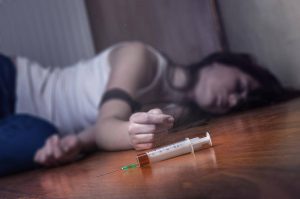 After admitting that it’s enough and you need to get off the hook, one gets worried that friends and family members may reject the “new him/her”. Some people may hesitate to share their decision with anyone since they don’t know how they will react. A person thinks that the might not be supported. Obviously, many people may not understand you nor offer you any support, however, don’t concentrate on them.
After admitting that it’s enough and you need to get off the hook, one gets worried that friends and family members may reject the “new him/her”. Some people may hesitate to share their decision with anyone since they don’t know how they will react. A person thinks that the might not be supported. Obviously, many people may not understand you nor offer you any support, however, don’t concentrate on them.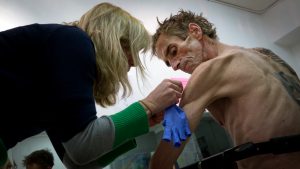 Eat nutritious meals, lots of vegetables, fruits, and be well hydrated. When one is addicted, they forget about their health and body. Detoxification should be a time of helping the body to heal from the damage it has suffered from heroin use.
Eat nutritious meals, lots of vegetables, fruits, and be well hydrated. When one is addicted, they forget about their health and body. Detoxification should be a time of helping the body to heal from the damage it has suffered from heroin use.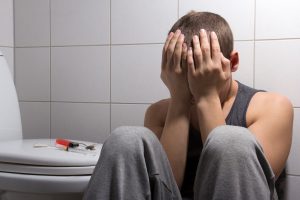 The following are some few tips that can help you as you detox from heroin. Remember that home detoxification is dangerous and no one should attempt to quit use of heroin before consulting a doctor. Medically supervised detox is safe and comfortable. Also, there are reduced chances of relapses.
The following are some few tips that can help you as you detox from heroin. Remember that home detoxification is dangerous and no one should attempt to quit use of heroin before consulting a doctor. Medically supervised detox is safe and comfortable. Also, there are reduced chances of relapses.

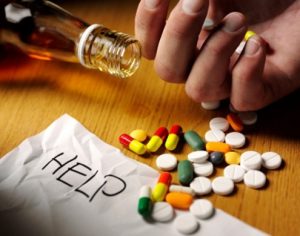 Moreover, the drugs are more likely to damage their brain and hamper its development considerably. This is because the brain of a teenager or child is still developing. The chemical interference caused by the drug substances in the brain could be permanent. In turn, the child’s mental capabilities could be compromised and future success affected.
Moreover, the drugs are more likely to damage their brain and hamper its development considerably. This is because the brain of a teenager or child is still developing. The chemical interference caused by the drug substances in the brain could be permanent. In turn, the child’s mental capabilities could be compromised and future success affected. Mothers are encouraged to focus less on the negative behaviors of the child and emphasize on the positive. One can do this by first effectively addressing the negative behavior. Whilst discouraging the bad behavior and highlighted the consequences, you should also mention and praise their positive behaviors.
Mothers are encouraged to focus less on the negative behaviors of the child and emphasize on the positive. One can do this by first effectively addressing the negative behavior. Whilst discouraging the bad behavior and highlighted the consequences, you should also mention and praise their positive behaviors.
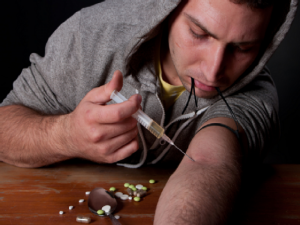 If you are a parent or partner struggling with issues of addiction, are you aware of the severe impacts your addiction has on your children?
If you are a parent or partner struggling with issues of addiction, are you aware of the severe impacts your addiction has on your children?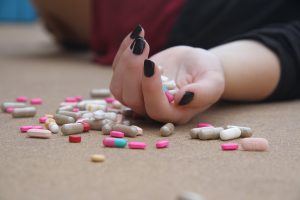
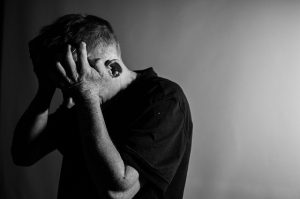 Every parent wishes that their children grow up in the right manner and enjoy a bright future. On the same note, every child has his/her unique dreams and aspirations in life and they all look forward to living a better life in days to come. The issue of drugs addiction at an early stage in life greatly affects brain development in children, affecting their studies and therefore a child might fail to achieve their career goals.
Every parent wishes that their children grow up in the right manner and enjoy a bright future. On the same note, every child has his/her unique dreams and aspirations in life and they all look forward to living a better life in days to come. The issue of drugs addiction at an early stage in life greatly affects brain development in children, affecting their studies and therefore a child might fail to achieve their career goals.